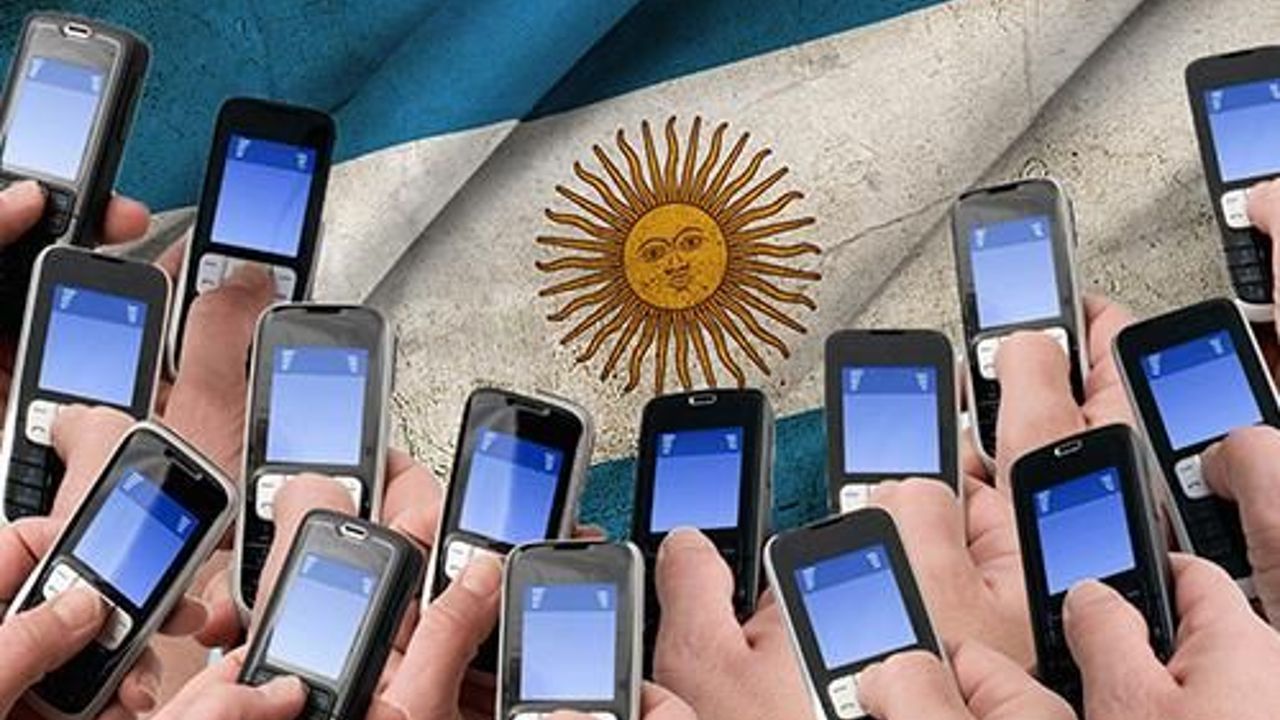Argentina playing catch-up in 4G phone service
4G tender attract $2.23 billion in bids in a country lagging behind most of Latin America for faster mobile connections.

Font Size:
Argentina is seeking to catch up with Latin America in fourth-generation mobile telephone service via a tender to speed up wireless calls and Internet connections, a telecommunications expert said Monday.
Argentina is the only country in the region that still doesnt have 4G other than the Guianas and a few Central American countries, said Enrique Carrier, director of Carrier y Asociados, a telecommunications research firm in Buenos Aires.
The government has been extremely slow to put in place the regulations for 4G, he said.
The third-largest economy in Latin America wants to now deploy the faster connections with a tender that started Friday.
The Communications Secretariat said in a statement Saturday that it will decide the winners of the 3G and 4G licenses by the middle of November.
Claro, Personal and Movistar, the three leading mobile telephone operators in the country, and a new player, Airlink, offered $2.23 billion for the 15-year licenses, nearly 14 percent more than the base price of $1.96 billion in the tender, the department said.
On offer is all of the 4G frequency and 22 percent of the 3G spectrum left over from the merger of two firms five years ago into what is now Movistar.
The winners will have 18 months to deploy the services in cities of more than 100,000 people and up to 60 months in the rest of the country of 43 million.
The 4G connections will allow mobile phone users to access the Internet and mobile services at greater speeds, making streaming video viable, for example.
The Communications Secretariat said this will require investments of more than $2 billion by the license winners, bringing foreign currency into the country.
Carrier said he is not sure why it took the country so long to offer the 4G spectrum, saying it is an important source of income for the state, as was seen in the tender.
Argentina is seeking to rebuild international reserves after tumbling to a seven-year low of less than $27 billion earlier this year, putting pressure on the peso to devalue against the dollar. The reserves have started to climb again thanks to a currency swap with Chinas central bank and a rise in grain exports. The level of reserves is a source of confidence in the peso, helping to stem capital flight thats been on the rise since 2011 due to surging inflation and a weakening peso.
Anadolu Agency
Argentina is the only country in the region that still doesnt have 4G other than the Guianas and a few Central American countries, said Enrique Carrier, director of Carrier y Asociados, a telecommunications research firm in Buenos Aires.
The government has been extremely slow to put in place the regulations for 4G, he said.
The third-largest economy in Latin America wants to now deploy the faster connections with a tender that started Friday.
The Communications Secretariat said in a statement Saturday that it will decide the winners of the 3G and 4G licenses by the middle of November.
Claro, Personal and Movistar, the three leading mobile telephone operators in the country, and a new player, Airlink, offered $2.23 billion for the 15-year licenses, nearly 14 percent more than the base price of $1.96 billion in the tender, the department said.
On offer is all of the 4G frequency and 22 percent of the 3G spectrum left over from the merger of two firms five years ago into what is now Movistar.
The winners will have 18 months to deploy the services in cities of more than 100,000 people and up to 60 months in the rest of the country of 43 million.
The 4G connections will allow mobile phone users to access the Internet and mobile services at greater speeds, making streaming video viable, for example.
The Communications Secretariat said this will require investments of more than $2 billion by the license winners, bringing foreign currency into the country.
Carrier said he is not sure why it took the country so long to offer the 4G spectrum, saying it is an important source of income for the state, as was seen in the tender.
Argentina is seeking to rebuild international reserves after tumbling to a seven-year low of less than $27 billion earlier this year, putting pressure on the peso to devalue against the dollar. The reserves have started to climb again thanks to a currency swap with Chinas central bank and a rise in grain exports. The level of reserves is a source of confidence in the peso, helping to stem capital flight thats been on the rise since 2011 due to surging inflation and a weakening peso.
Anadolu Agency
Video News

WORLD
26 Mart 2024 - 11:18
Photo News






